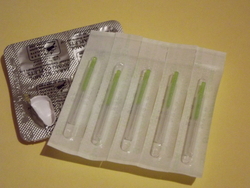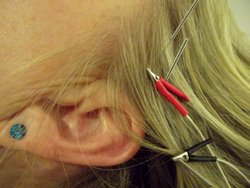
In the largest randomised trial of acupuncture for allergic asthma to date, German researchers have shown that adding acupuncture to standard care, is associated with improved quality of life compared with standard care alone. A total of 1445 patients (mean age 44) were randomly allocated to receive either routine care or routine care plus up to 15 acupuncture treatments over three months. The overall study comprised three months of treatment plus three months of follow-up.
Acupuncture was associated with a clinically significant improvement in asthma-related quality of life, as well as general mental and physical health. These improvements persisted to at least the end of the six month study period.
(Acupuncture in Patients with Allergic Asthma: A Randomized Pragmatic Trial. Journal of Alternative & Complementary Medicine, April 2017.)

 A systematic review by a joint American and Chinese team, suggests acupuncture could benefit arrhythmias. The most common example is atrial fibrillation but others were covered in this review. They studied 13 trials, involving nearly 800 patients, and found that:
A systematic review by a joint American and Chinese team, suggests acupuncture could benefit arrhythmias. The most common example is atrial fibrillation but others were covered in this review. They studied 13 trials, involving nearly 800 patients, and found that:
